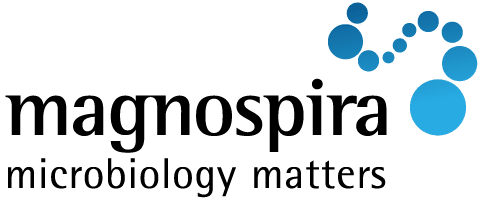How sport protects us from disease
In a nationwide survey in Germany, about 45% of respondents stated that they rarely or never exercise. Yet, we are all too aware that physical activity is essential for our health. We know that exercise strengthens our cardiovascular system and immune system. It protects us from bone fractures, reduces dangerous visceral fat, and brings numerous other benefits. However, there is another aspect in our body that benefits from regular exercise and gratefully rewards us: Our gut microbiome!
Exercise Against Cancer Risks
The protective effect of exercise against diseases is evident, for example, in the risk figures for colorectal cancer. Active people have a 24% lower risk of developing the disease. Although the exact mechanism behind this is not fully understood, our gut bacteria seem to play a role. This is suggested by the fact that the composition of the gut microbiome in sick individuals differs from that in healthy ones. To understand how this relates to exercise, let’s first take a general look at the relationship between physical activity and our bacteria.
Exercise Alters Our Gut Microbiome
The declared goal of many researchers is to influence the gut microbiome and thus our health. The most significant and crucial factor for this is our diet – but by no means the only one. Exercise also has an impact on how our microbiome is composed.
Athletes, such as marathon runners, have a more diverse microbiome compared to those who exercise little or do not exercise. Specifically, athletes have more types of bacteria that produce so-called “short-chain fatty acids.” Dietary fibers that our body cannot digest itself are broken down and thus made accessible to our organism. These short-chain fatty acids are extremely valuable as they not only supply our body and brain cells with energy but also have anti-inflammatory effects, among other functions.
Bacteria Can Protect Us from Bowel Cancer
The protective effect of exercise against colorectal cancer could be related to an increased production of short-chain fatty acids, particularly butyrate. Regular physical activity increases the proportion of bacteria species that produce butyrate. In contrast, studies have shown that colorectal cancer patients have a lower concentration of butyrate-producing bacteria.
Healthy epithelial cells, body cells located in the intestines, react differently to butyrate in in vitro studies compared to cancerous tumor epithelial cells. In healthy cells, butyrate is processed and leads to the activation of genes that promote cell growth. This results in a strong intestinal wall that protects our body from dangerous substances in food. Tumor cells, on the other hand, cannot break down butyrate, accumulate it inside the cell, thereby inhibiting cell growth. The cell dies, the tumor shrinks.
Mice particularly susceptible to this type of cancer developed smaller tumors through regular exercise, and a correlation was observed between their butyrate concentration and the number of tumors.
Despite promising results in experiments, it should be noted that laboratory data are not always directly transferrable to humans. Nevertheless, much suggests that exercise and the resulting changes in the gut microbiome have a protective effect against colorectal cancer.

Protection for Nerve Cells
One of the most important messengers in our brain is the so-called “Brain-derived neurotrophic factor” (BDNF), which protects our nerve cells from dying. In experiments with mice, a lack of BDNF led to the death of nerve cells in the brain. Interestingly, there is a correlation between low BDNF content and anxiety disorders as well as depression, often associated with inflammatory bowel diseases.
The connection between BDNF content and our bacteria is shown in germ-free mice, which have never come into contact with bacteria. Compared to non-germ-free animals, these mice had a lower BDNF concentration in brain regions such as the hippocampus and parts of the cortex. Additionally, it was shown that administering Bifidobacteria leads to an increase in BDNF content.
Experiments with piglets also showed that exercise led to a higher proportion of Bifidobacteria. Eliminating them with antibiotics led to delayed cell growth in the hippocampus. This delay could be counteracted by adding Bifidobacteria as well as through exercise training.
This shows that physical activity changes the microbiome and thereby positively affects our brain and mental state.
Holistic Health Through Exercise
There is a direct connection between physical activity, gut bacteria, and our health. A holistic view is essential. Exercise supports our body in the complex interplay between bacteria and body cells and thus protects us from diseases. (LS)
Further reading:
Mailing LJ, Allen JM, Buford TW, Fields CJ, Woods JA. Exercise and the Gut Microbiome: A Review of the Evidence, Potential Mechanisms, and Implications for Human Health. Exerc Sport Sci Rev. 2019 Apr;47(2):75-85. doi: 10.1249/JES.0000000000000183.
Dalton A, Mermier C, Zuhl M. Exercise influence on the microbiome-gut-brain axis. Gut Microbes. 2019;10(5):555-568. doi: 10.1080/19490976.2018.1562268.
Clauss M, Gérard P, Mosca A, Leclerc M. Interplay Between Exercise and Gut Microbiome in the Context of Human Health and Performance. Front Nutr. 2021 Jun 10;8:637010. doi: 10.3389/fnut.2021.637010.



